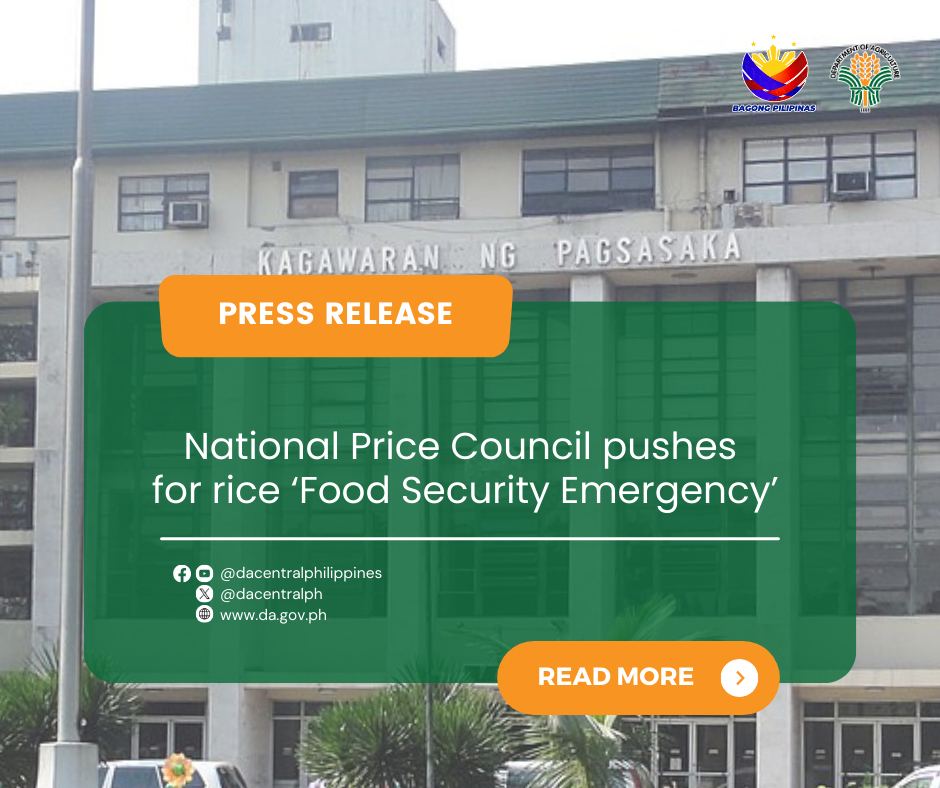
The National Price Coordinating Council (NPCC) has approved a resolution urging the Department of Agriculture (DA) to declare a “food security emergency for rice” as prices remain high despite declining global rice costs and tariff reductions ordered by President Ferdinand Marcos Jr.
Trade and Industry Secretary Ma. Cristina Roque, NPCC chair, said the declaration would allow the National Food Authority (NFA) to release buffer stock rice to stabilize local prices. The NFA would replace the released stocks with locally-produced rice to support Filipino farmers.
“This declaration empowers the DTI to take decisive action in protecting consumer welfare while strengthening our nation’s agricultural backbone. By prioritizing the produce of hardworking Filipino farmers, we are fostering a resilient and self-reliant Bagong Pilipinas—one that ensures stability, sustainability, and shared prosperity for both consumers and the agricultural sector.” Secretary Roque underscored.
Agriculture Secretary Francisco P. Tiu Laurel Jr. welcomed the resolution, describing it as a critical move in addressing rice affordability. He cited DA’s ongoing efforts, including a maximum suggested retail price (SRP) of P58 per kilo for imported rice, effective January 20. This measure ensures that local rice prices remain profitable for farmers.
Under the Rice Tariffication Law, NFA’s role is limited to procuring palay from local farmers and holding buffer stocks. It cannot regulate rice trading or directly sell rice to the public. Declaring a food security emergency would temporarily expand its capabilities.
Sec. Tiu Laurel also stressed the broader economic benefits of affordable rice prices, noting their impact on inflation and the Bangko Sentral ng Pilipinas’ interest rate policies. “Even if you don’t eat rice, lower rice prices help stabilize our economy,” he said.
The NFA currently holds 300,000 metric tons of rice in buffer stocks. Releasing these reserves would help decongest warehouses in preparation for the upcoming February harvest.
Rice accounts for nearly 10% of Filipino household budgets, doubling to 20% for poorer families. The NPCC stressed the urgency of stabilizing prices to protect consumers and farmers alike. ###













